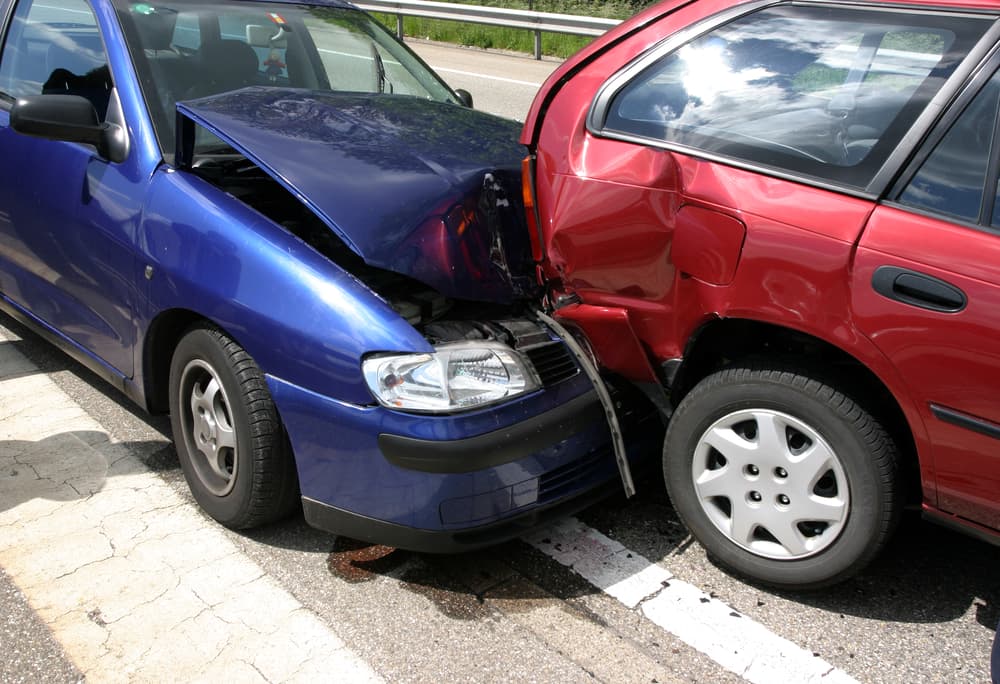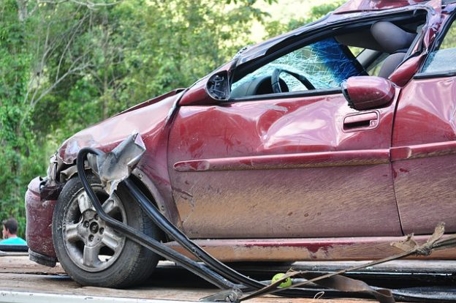Suppose your car accident medical bills reach $250,000, but the at-fault driver only carries Texas’s minimum liability coverage of $30,000. Many injury victims in Abilene and San Angelo face this same problem when the cost of their injuries is far higher than the available insurance coverage.
A skilled Texas car accident attorney can identify additional options for financial recovery when policy limits are not enough. Depending on the facts of your case, compensation may also be available through umbrella policies, third-party liability, or the personal assets of the at-fault driver. Each option requires careful legal review and a strategic approach.
At the Law Offices of David M. White, we carefully investigate every case to find all possible recovery sources when insurance coverage is limited. Call (325) 437-3311 today to discuss your situation and learn what legal options may be available to you.
Schedule a Free ConsultationKey Takeaways About Car Accident Insurance Limits
- Policy limits create artificial ceilings on compensation, but multiple legal strategies exist to recover damages exceeding available insurance coverage.
- Personal injury protection, uninsured motorist coverage, and umbrella policies provide additional compensation layers beyond basic liability limits.
- At-fault drivers remain personally liable for damages exceeding their insurance, making their assets potential recovery sources through civil judgments.
- Bad faith insurance practices may trigger additional damages beyond policy limits when carriers wrongfully deny or delay valid claims.
- Quick action preserves evidence and prevents asset transfers that complicate recovery efforts against underinsured defendants.
Texas Insurance Requirements vs. Real Accident Costs
Why Minimum Car Insurance Coverage Fails After Serious Accidents
Texas requires a minimum of $30,000 per person and $60,000 per accident in bodily injury liability coverage, limits that have not increased since the 1980s despite soaring medical costs.

A single emergency helicopter transport to Hendrick Medical Center or Shannon Medical Center can exceed $50,000, quickly depleting the available coverage before accounting for surgeries, rehabilitation, or lost wages. These outdated limits fall far short of covering today’s medical expenses.
Many drivers purchase only the minimum coverage required by law to reduce premiums, which often creates significant protection gaps in serious accidents. When coverage proves inadequate, accident victims may face substantial financial hardship through no fault of their own.
An experienced attorney can help you pursue fair compensation by navigating this complex insurance landscape.
Calculating True Accident Costs
Serious car accidents generate expenses far beyond immediate medical treatment. Long-term costs accumulate through ongoing therapy, future surgeries, medical equipment, and permanent lifestyle modifications. Lost earning capacity for injured workers creates decades of financial impact that minimum insurance policies never approach covering.
Economic experts help your attorney project lifetime costs, factoring in inflation, evolving medical technology, and future care needs. These comprehensive calculations often reveal seven-figure damages for accidents involving traumatic brain injuries, spinal damage, or multiple fractures requiring extensive reconstruction.
Multiple Insurance Policies May Apply to Your Accident
How Stacking Insurance Coverage Increases Your Compensation
Texas law may permit combining certain types of insurance coverage, such as uninsured/underinsured motorist (UM/UIM) policies, under specific circumstances. The availability of stacking depends on the policy language and court interpretation, such as under Stracener v. USAA, 777 S.W.2d 378 (Tex. 1989).
Your attorney investigates every potential coverage source that might apply to your accident, uncovering policies many victims don't realize exist. You may be able to stack coverage in situations such as:
- Multiple vehicles on the same policy with separate uninsured/underinsured motorist coverage
- Different household members' policies providing overlapping protection
- Commercial policies covering vehicles used for any business purposes
- Employer-provided coverage for work-related travel or company vehicles
Strategic coverage stacking transforms inadequate individual policies into substantial combined protection. Insurance companies resist these claims, requiring experienced legal representation to enforce stacking rights.
How Umbrella and Excess Insurance Policies Boost Compensation
Wealthy individuals and businesses often carry umbrella policies providing millions in additional coverage above standard limits. These excess policies activate once underlying coverage exhausts, creating substantial recovery opportunities for serious injuries. Your attorney investigates defendant financial profiles to identify potential umbrella coverage.
Commercial defendants frequently maintain excess coverage due to higher liability exposure. Trucking companies, delivery services, and rideshare operators may carry policies exceeding one million dollars. Accessing these policies requires proving damages justify exceeding underlying limits while navigating complex commercial insurance structures.
Pursuing Personal Assets When Insurance Falls Short
Proven Legal Strategies to Discover Hidden Assets After a Car Accident
When insurance coverage does not cover full damages, an experienced car accident attorney can pursue the at-fault driver’s personal assets. Investigators use public records, financial databases, and surveillance to uncover hidden property, investments, and income.

Real estate in Taylor County, Tom Green County, and surrounding areas can be subject to liens to secure payment. Under Texas law, non-exempt assets such as investment accounts, business interests, and non-homestead property may be collected. Homesteads, most wages, and essential personal property are generally protected
Social media often exposes concealed wealth through posts about luxury travel or high-end purchases. Employment and tax records can also reveal income available for collection.
How to Enforce a Judgment and Collect From At-Fault Drivers
Winning a judgment is only the start of recovery. Texas law provides several legal remedies to collect a judgment, but success depends on how strategically they’re applied. Post-judgment discovery requires defendants to disclose assets under oath, with penalties for false or incomplete responses.
When bank information is available, attorneys may garnish non-exempt funds or file property liens that prevent sales or refinancing until payment is made. Texas generally prohibits wage garnishment except for child support, taxes, and student loans, but seizing business assets or placing financial pressure on defendants often leads to faster settlements.
Time Limits for Filing Claims in Texas
Texas law sets strict deadlines for filing personal injury claims that result from car accidents. Under Texas Civil Practice and Remedies Code §16.003, you generally have two years from the date of the accident to file a lawsuit seeking compensation for injuries, medical bills, and other losses.
Failing to act within this two-year window can permanently prevent recovery, even when liability and damages are clearly established. Courts enforce the statute of limitations strictly, and in most vehicle accident cases there are no exceptions for delayed discovery of injuries.
Certain situations can shorten or extend this filing period. Claims involving government-owned vehicles, such as city maintenance trucks or county emergency vehicles, often require a formal notice of claim within a few months of the incident, depending on the local government’s charter.
Cases involving commercial trucking companies or out-of-state defendants may also have different procedural timelines that must be carefully followed.
Because evidence deteriorates quickly and witnesses’ memories fade, early legal consultation is essential. An attorney can preserve key documentation, notify all responsible parties, and file the appropriate claims before deadlines expire. Acting promptly protects your right to pursue full compensation under Texas law.
Understanding time limits is only part of protecting your case. Avoiding common mistakes after a car accident can be just as important in maximizing recovery.
Schedule a Free ConsultationCommon Mistakes That Limit Recovery
The decisions you make after a car accident can greatly affect your personal injury claim. Insurance companies often search for ways to reduce payouts, and small errors can weaken your case. An experienced car accident attorney helps you avoid these traps and protect your right to full injury compensation under Texas insurance laws.

One major mistake is accepting an early settlement before knowing the full extent of your injuries. Insurance adjusters use quick, low offers to close claims cheaply, often leaving victims with unpaid medical bills and lost wages.
Another common error is speaking to insurance adjusters without legal guidance. Even simple statements can be used to downplay your injuries or shift blame. Let your car accident attorney handle all communications to safeguard your claim.
Victims also hurt their recovery when they skip medical appointments or fail to follow treatment plans. Insurers see these gaps as proof that injuries have healed or were exaggerated. Strong medical documentation is essential to prove the lasting impact of your injuries.
Other mistakes that can limit recovery include:
- Posting about the accident on social media, where photos or comments can be misinterpreted by insurers or defense attorneys.
- Failing to keep detailed records of medical expenses, lost wages, and rehabilitation costs, which are necessary to prove full injury compensation.
- Waiting too long to contact a car accident attorney, which can result in lost evidence and missed legal deadlines.
Working closely with an attorney ensures your case is properly documented and protected. Once your claim is strong, your lawyer can also challenge any bad faith insurance practices that delay or deny fair compensation.
Bad Faith Claims Against Insurance Companies
Recognizing Bad Faith Practices
Under Texas Insurance Code §§541.060 and 542.003, and Texas common law, insurers must handle claims in good faith and deal fairly with policyholders. A failure to do so can create separate bad faith claims that may result in damages beyond the policy limits.
Violations create separate bad faith claims potentially worth more than underlying coverage. Your attorney documents patterns of unfair practices that establish bad faith liability beyond isolated mistakes.
Bad faith indicators demanding immediate legal intervention include unreasonable claim denials despite clear liability, failure to investigate or respond within legal timeframes, and misrepresentation of policy terms or applicable law. Lowball settlement offers ignoring documented damages also demonstrate bad faith.
Stowers Doctrine in Texas
Under the Stowers doctrine, an insurer that unreasonably refuses a reasonable settlement demand within policy limits when liability and damages are reasonably clear may be held liable for the full amount of any resulting judgment, even if it exceeds the policy limits. When an insurance company declines to settle within policy limits despite clear liability, it can become responsible for the entire judgment, including amounts that exceed the coverage.
This powerful tool motivates insurance companies to negotiate fairly rather than gambling with policyholder assets. Your car accident attorney leverages Stowers' exposure to force reasonable settlements, particularly when damages obviously exceed available coverage. Faced with potential unlimited liability, insurance companies often find ways to fund larger settlements.
Strategic Settlement Negotiations Exceeding Policy Limits
How Attorneys Create Leverage to Recover More Than Insurance Limits

Effective negotiation strategies push settlements beyond stated policy limits through creative pressure points. Your attorney develops leverage by identifying bad faith exposure, locating additional coverage sources, and demonstrating collection ability against personal assets. Insurance companies and defendants respond to credible threats of extended litigation and asset seizure.
Multiple defendant situations create opportunities for strategic settlements exceeding individual policy limits. Joint and several liability rules make each defendant potentially responsible for total damages, motivating higher individual contributions to global settlements. Your attorney orchestrates these complex negotiations to maximize total recovery.
Payment Options for Settlements That Exceed Insurance Coverage
Settlements exceeding insurance limits often involve creative payment structures accommodating defendant financial realities. Structured settlements provide guaranteed future payments while preserving defendant assets. These arrangements may include:
- Immediate policy limit payments plus extended personal payment plans
- Asset transfers including real estate or business interests
- Percentage of future earnings over specified timeframes
- Hybrid structures combining cash, assets, and future payments
Creative structuring allows defendants to satisfy obligations without bankruptcy while providing accident victims meaningful compensation beyond insurance limits.
How Your San Angelo Car Accident Attorney Breaks Through Policy Limits
At The Law Offices of David M. White, we handle complex car accident cases where damages exceed available insurance coverage. With 17 years of experience challenging insurers across West Texas, David White uncovers hidden policies and alternative recovery sources to turn inadequate settlements into full compensation.
From offices in Abilene and San Angelo, the firm has the resources for detailed asset investigations and litigation. While others settle for policy limits, we dig deeper, using proven negotiation strategies to pursue every possible dollar for our clients.
Our contingency fee structure means you pay nothing unless we recover for you. This levels the playing field against insurers and wealthy defendants backed by teams of attorneys. We work with experienced investigators, forensic accountants, and medical economists to quantify damages and locate hidden assets.
Unlike high-volume firms, David White personally manages each case. His hands-on approach and dual background in criminal defense and personal injury law give clients a strategic advantage in proving liability and maximizing compensation.
FAQs for Car Accident Attorneys
What happens if the at-fault driver has no insurance or assets?
Your own uninsured/underinsured motorist coverage provides primary protection when at-fault drivers lack adequate resources. Additional recovery sources may include employer liability for work-related accidents, premises liability against property owners, and product liability against vehicle manufacturers for defect-related crashes.
How much money above policy limits might I recover?
Recovery potential depends on defendant assets, additional coverage availability, and bad faith liability. Wealthy defendants or commercial entities may pay substantial amounts exceeding stated limits. Your attorney evaluates specific circumstances to estimate realistic recovery ranges.
Do I have to sue the at-fault driver personally?
Personal lawsuits become necessary when insurance coverage proves inadequate for your damages. These suits target both insurance recovery and personal assets, creating settlement pressure that often produces payments exceeding initial policy limits without trial.
What if multiple people were injured in the same accident?
Texas per-accident limits may leave insufficient coverage for multiple injury victims. Your attorney must act quickly to preserve your share while potentially coordinating with other victims for maximum collective recovery through strategic litigation.
How long do I have to wait for compensation beyond policy limits?
Initial insurance payments typically arrive within 90 days, but additional recovery through personal assets or bad faith claims extends timelines significantly. Payment structures may provide immediate partial compensation with remaining amounts paid over time.
Maximum Recovery Starts with Aggressive Legal Action Now

Policy limits represent obstacles to overcome, not barriers to accept. Every day without proper legal representation costs money as evidence disappears and defendants protect assets from future judgments. The Law Offices of David M. White possesses the experience, resources, and determination to pursue every available dollar when insurance falls short.
Your injuries and losses don't diminish because negligent drivers chose inadequate insurance. Multiple legal strategies exist to bridge the gap between policy limits and full compensation, but success requires immediate action and experienced guidance through complex litigation.
Call (325) 437-3311 now for your free consultation with an Abilene car accident attorney who refuses to let insurance limits determine your recovery. The Law Offices of David M. White fights for maximum compensation through every available legal avenue.
Schedule a Free Consultation